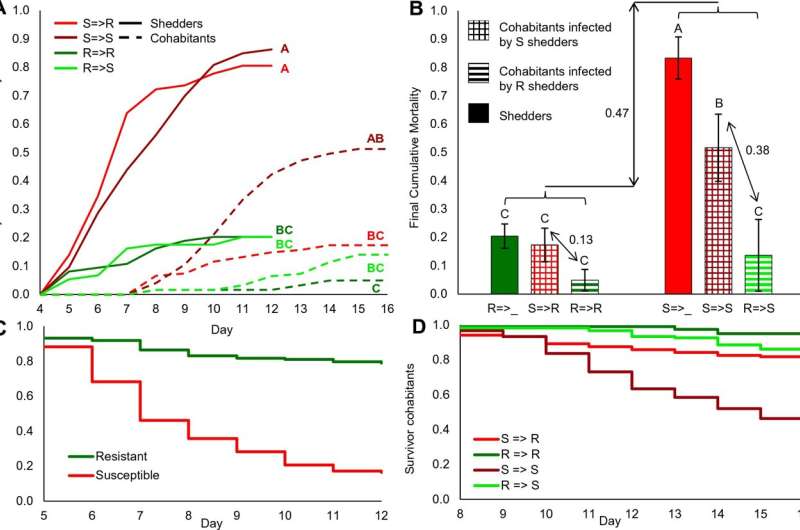
A new study led by Prof. Lior David from the Faculty of Agriculture at the Hebrew University investigated the infectivity of disease-resistant and susceptible fish by examining their roles as shedders (infecting) and cohabitants (infected) in various combinations. The study focused on common carp; a species that’s commonly cultivated in aquaculture.
Infectious diseases pose significant challenges to the health and welfare of both humans and animals. While breeding genetically resistant animals is a sustainable solution for healthy food production, providing unique research opportunities, the relationship between resistance and infectivity remains poorly understood.
The study revealed that fish resistant to the virus exhibited lower viral loads in their spleens and demonstrated higher survival rates compared to susceptible fish. Susceptible fish infected by resistant counterparts experienced reduced mortality rates compared to those infected by other susceptible fish. Additionally, tanks housing resistant fish exhibited decreased viral levels in the water, leading to lower infection of other fish within the tank.
The research paper, titled “Disease resistance and infectivity of virus susceptible and resistant common carp strains,” is published in Scientific Reports.
Prof. Lior David, the lead researcher of the study, commented, “The study provides experimental evidence that resistance to cyprinid herpes virus type 3 reduces infectivity due to a host mechanism that restricts viral replication and pathogen shedding. This not only benefits aquaculture production but also contributes to reducing virus propagation and disease spread in natural water bodies.”
These results demonstrate that disease-resistant fish not only survive better but also reduce the infection rate in others. This has significant implications for aquaculture production and disease epidemiology. The study highlights the importance of breeding disease-resistant animals for sustainable food production and animal welfare.
More information:
Batya Dorfman et al, Disease resistance and infectivity of virus susceptible and resistant common carp strains, Scientific Reports (2024). DOI: 10.1038/s41598-024-55133-2
Citation:
Disease-resistant strains of carp provide advancements in aquaculture, enhance gefilte fish quality (2024, April 17)
retrieved 17 April 2024
from https://phys.org/news/2024-04-disease-resistant-strains-carp-advancements.html
This document is subject to copyright. Apart from any fair dealing for the purpose of private study or research, no
part may be reproduced without the written permission. The content is provided for information purposes only.






/cdn.vox-cdn.com/uploads/chorus_asset/file/25426765/LOW_RES___HAALAND_KEYVISUAL.jpg)
